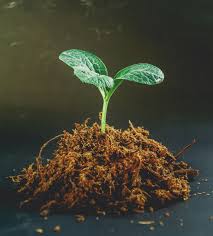We cannot be certain where we are headed or what daily life will be like in a year. For now, I am feeling incredibly grateful for things like being able to cook more elaborate meals with electricity, air-conditioning, Wi-Fi, grocery delivery, Amazon, and Netflix (and I don’t even typically watch television!)
On a more somber note, nearly every one of us has now discovered that we’ve lost something we will never get back- a semester of school, a graduation ceremony, prom, college tours, a milestone birthday celebration for a loved one, the ability to attend a wedding or a funeral, or visit a dying relative at their bedside. Some events can be rescheduled, but not without significant expense. Many have lost jobs and significant retirement funds, resulting in great insecurity and fear for the future.
At worst, lives have been lost.
As our days drag on and we become increasingly more frustrated and anxious, is anyone else finding renewed or newfound respect for the fortitude necessary to have survived the experiences our grandparents and great-grandparents had throughout their lifetimes? I am referring to events like the Great Depression, World War II (lasting six years) and Vietnam (a TWENTY-year war), among others. You may recall that Senator John McCain existed for nearly 6 years as a prisoner of war during Vietnam. Below is an excerpt describing John McCain’s wartime experience, taken from Time Magazine, September 11th, 2018;
“The details that comprised ‘the worst of it’ were grisly: starvation rations, iron manacles, solitary confinement, the sick left to sit in their own filth. The end goal of such torture was often the extraction of information. But along with those reports came word that American prisoners had proved tough to break. Asked to list the names of the men in his squadron, McCain instead listed the offensive line of the Green Bay Packers. When his famous name afforded him a chance to jump the line to go home early, he refused; prisoners were supposed to be released in the order in which they had been taken, and he knew he wasn’t next in line. When his cellmate’s broken arm went untreated, McCain fashioned a cast out of his own bandages. All told, he had spent five and a half years as a prisoner, with a substantial amount of that time in solitary confinement. And, though he was self-deprecatingly aware of the irony of becoming well-known as a military man for what he did as a prisoner of war, his story struck a chord with Americans of all political leanings. And McCain, as much as anyone, knew that such a feeling was rare — and something that should not go to waste.”
Nelson Mandela is another well-known example worth revisiting. Imprisoned for twenty-seven years, he and the other prisoners lived completely isolated, received very little to eat and were forced to pound rocks into gravel with mere hammers. Mandela and the others were able to retain their sanity because of the community they formed for themselves during incarceration. That sense of belonging to a group and remaining committed to the same principles and decisions about the way forward was essential to movement-building and survival, despite extremely harsh and oppressive circumstances. Yet Mandela never lost sight of the fact that he was serving a larger purpose while imprisoned. Furthermore, he didn’t hold a grudge against his guards. That absence of personal animosity toward those in charge of his confinement was essential to his survival.
But back to 2020 . . .
. . . aside from our heroic healthcare workers, first-responders, and other essential professionals (including housekeeping, waste management, utilities, and maintenance), we are not experiencing the sort of physical fatigue one endures as a prisoner of war, living in substandard conditions with cortisol coursing through our veins, gradually inducing PTSD that has the potential to last a lifetime. We have access to fresh food and water. And despite a never-ending quest for toilet paper, we can phone a friend to borrow some, or at worst, take a shower!
One surefire way I have found to cope with my own anxiety, occasional lethargy, and episodic ennui is to revisit my interactions with other, lesser-known heroes from my own past experiences who have shaped me and given me great perspective. Some of my work puts me in the company of senior citizens, who have lived through some of the most trying and terrifying real-life experiences. Many of them have shared their stories with me with great vulnerability and candor. I have found it to be life-changing.
I have been revisiting memories of my time spent volunteering at a local, annual luncheon which honors Holocaust Survivors. To witness such incredibly resilient human beings arrive on busses, dressed in their finest, hair and makeup done, watching them greet one another before lunch with such life and zest was one of the most moving things I have ever experienced. Knowing what they had endured in prison camps and then to observe them being so utterly happy and excited in spite of a traumatic past was truly a spiritual moment for me.
I have also been reminded of the hours I spent volunteering at a local food pantry serving as the Dessert Queen, doling out donated, nearly stale, days-old baked goods to deserving individuals in need of a meal. There is a distinct look about someone who has lived a long time unemployed, on public assistance, or on the streets—experiencing constant stress and slowly accepting, even embracing, what it means to live with humility. For some, that means becoming humbled by having to repeatedly ask for something that feels like a basic right to most of us. For others, it means becoming humbled as a consequence of a lifetime of making bad decisions that ultimately put them on the streets. Nonetheless, I was privileged to experience respect and appreciation from the patrons in that food pantry as often, if not more often, than I have experienced respect and courtesy at many high-end fundraisers, galas, and PTA luncheons. Most notably, it was obvious that the majority of the patrons who visited the food pantry had come to find a level of self-love, acceptance, and inner confidence—or perhaps they never lost it in the first place. I found that inner-strength to be more inspiring than anything else. To become so deeply marginalized, yet still be able to hold one’s head high is a remarkable feat. Looking back on all my years spent in circle-time, on playdates and on playgrounds as a stay-at-home mom, I can say that I have observed moms from the suburbs struggle with self-love and self-acceptance far more often than those I connected with in the food pantry.
Pray, tell, Amy! What is your point?!?
I’ll tell you . . .
I take great comfort in my ability to connect with my loved ones right now, whether they live near or far away. But aside from them, my greatest sense of comfort during this pandemic has been found in recalling the experiences and the lessons I have gained by being in relationship with others.
I am fortunate to posses a lifetime of experiences like those I mentioned above. Chances are, you do too. If you feel that you don’t, then today is a fabulous time to begin creating them fro someone else. In other words, do nice things and engage in simple, productive acts that leave your piece of the world better than you found it—even if it seems hard to find inspiration or follow-through. Even if it seems pointless. Improving people and surroundings is never pointless. Compliment someone on your daily walk—from a distance, of course! Check on your neighbor. Post an inspirational quote. Make your bed. Clean behind your stove. Organize your underwear drawer. Again.
My wish for you during this seemingly endless, profoundly trying time is that you rekindle your appreciation for the sense of a community greater than yourself. Yes! I realize there is irony in that concept during a time of required quarantining! from three, I encourage you to draw upon your own profound past experiences with others as a way to best cope with the personal losses you are grieving today. Those voids which have been gradually carved out by fear, anxiety, and despair for the unknown that lies ahead indeed feel unbearable. Surfing the internet, immersing ourselves in social media and binge-watching Tiger King may seem like a fine method of coping—but only for a while. Refuse the urge to let any of those behaviors become a passive way of avoiding reality, or worse, avoiding your emotions altogether.
Do not wait for time to simply pass. Do not count on someone to save any of us. Instead, look to those whom you know to have overcome the unspeakable, the unimaginable, even. Revisit those personal life experiences during which time you were carried by the strength, adversity and courage exhibited by others. What words of wisdom did you grandfather leave you? What was your third-grade teacher’s catch-phrase? Recount those times when you left someone’s day (or yours) a bit better than you found it. Now go DO and BE more of those things.
The Beatles said it best when they wrote, “the love you take is equal to the love you make.” Your life experiences have collectively prepared you for this moment. This is truly a time to call upon your most profound memories of love, support, hope, and inspiration. Take the best of those experiences and transform them into inspiration and motivation each day.







Read 0 comments and reply